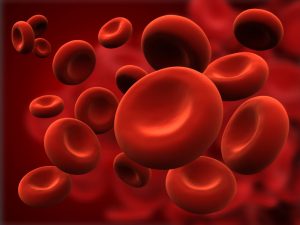How often do you feel unnecessarily tired? Do you often get colds? You may have low levels of iron in your blood.

Chronic fatigue, hair loss, brittle nails, and skin problems are signs of iron deficiency.
As statistics show, the number of people who are deficient in iron increases every year. It is the most common pathology in the world. According to statistics, more than 1.5 billion people on our planet have an iron deficiency. It is not a disease, but it may indicate that you have an unhealthy condition.
The role of iron in your health:
- participates in redox processes,
- promotes tissue regeneration,
- takes part in the formation of immunity,
- improves the functioning of the circulatory system,
- supplies organs and tissues with oxygen and so on.
People who have iron deficiency may see their symptoms in their daily life. If you notice that your hair has become dull, worn out, gray, you should get tested and check the level of iron. Also, iron deficiency leads to brittle nails and curvature of the nail plate. Also, you feel an overwhelming urge to eat raw meat, chalk, or toothpaste, and so on. Perverse taste is a signal of iron deficiency. But not just your taste buds can have perverse desires. Your scent will also require unusual odors such as acetone, kerosene, gasoline, mold, and so on.
The consequences of iron deficiency can manifest themselves in different ways. Muscle pain, back pain, tooth decay can be the consequences of a lack of iron, too. At the same time, your body can be lethargic, disobedient, with constant malaise. Iron deficiency leads to a decrease in the level of hemoglobin in the blood. As result, the cells in your body do not receive the necessary nutrition. Oxygen in the required amount will not enter the cells of the body, and metabolic processes in the cells are disrupted.

Diseases that result from iron deficiency:
- diseases of the cardiovascular system,
- vestibular disorders,
- frequent colds,
- diseases of the digestive system and kidneys.
Iron deficiency reasons:
- erosion and stomach ulcers,
- tumors of the stomach and colon,
- hemorrhoids,
- profuse menstrual blood loss,
- disorders of iron absorption,
- disruption of the small intestine, stomach, and duodenum,
- pregnancy and lactation.
Pay attention to any changes in your body, and see your doctor at the first negative symptoms.
Your doctor can find the cause of your low iron levels and give you the right treatment.
Comments are closed, but trackbacks and pingbacks are open.